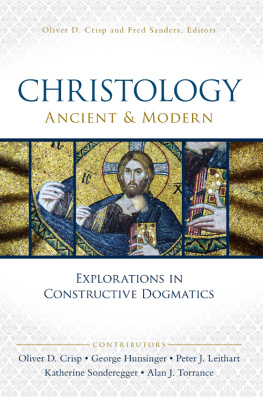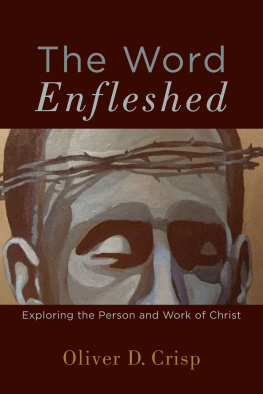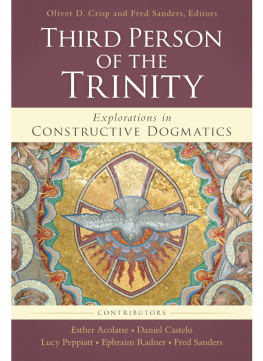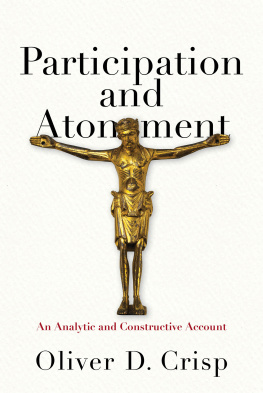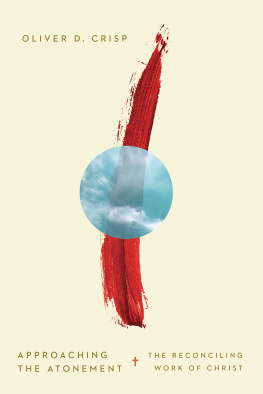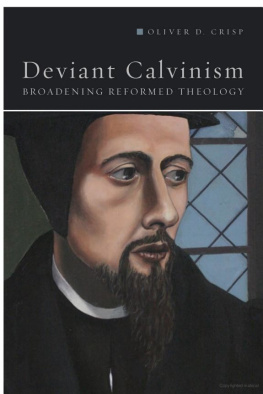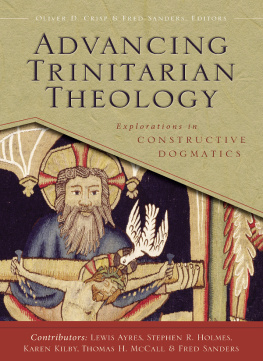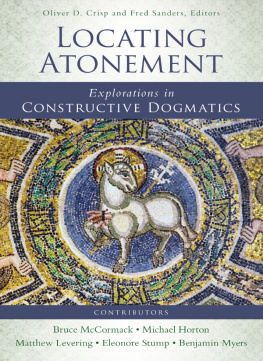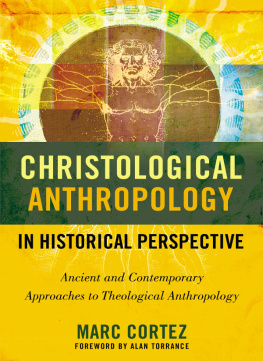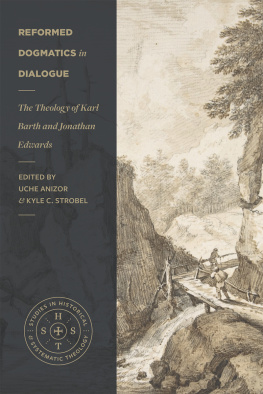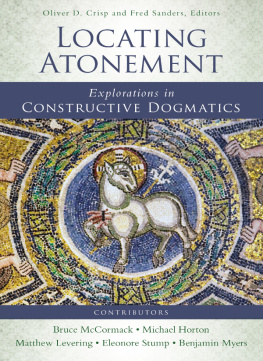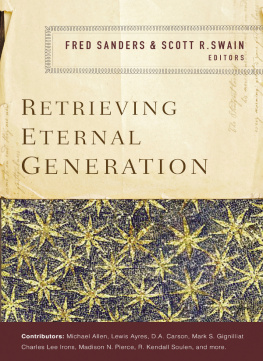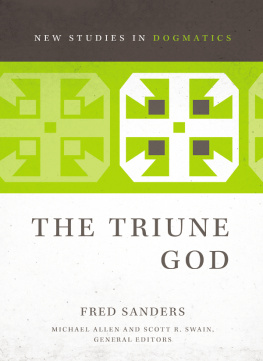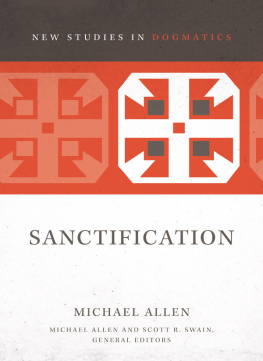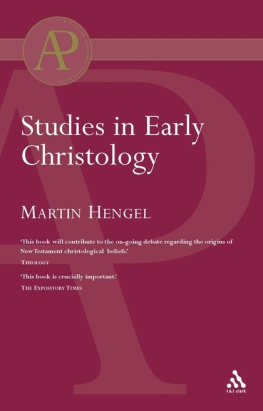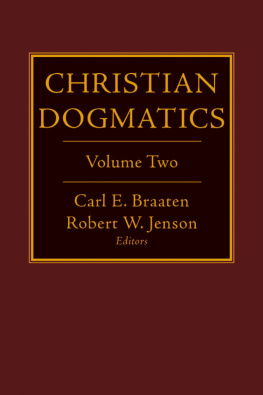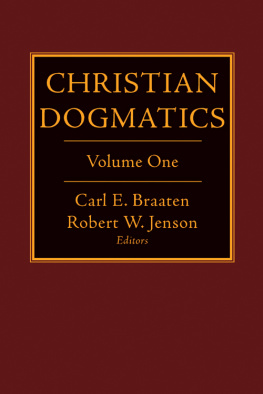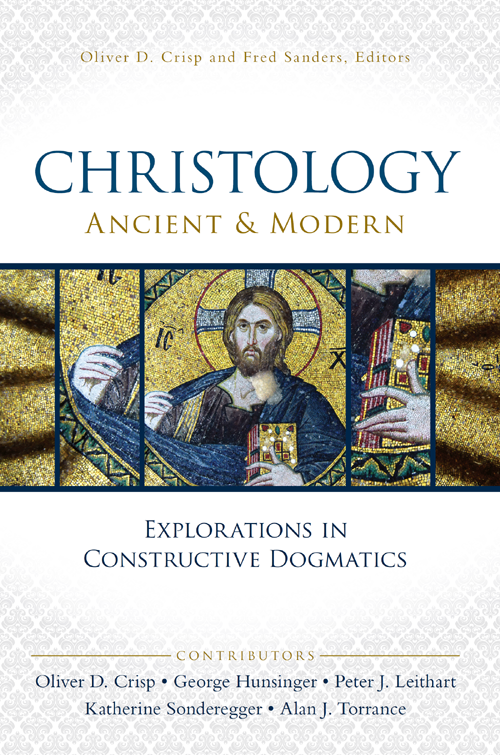This is the first volume in a series that will be published by Zondervan Academic. It is the published proceedings of the inaugural Los Angeles Theology Conference held under the auspices of the Torrey Honors Institute of Biola University with the support of Fuller Theological Seminary, in January 2013. The conference is an attempt to do several things. First, it provides a regional forum in which scholars, students, and clergy can come together to discuss and reflect on central doctrinal claims of the Christian faith. It is also an ecumenical endeavor. Bringing together theologians from a number of different schools and confessions, the LATC seeks to foster serious engagement with Scripture and tradition in a spirit of collegial dialogue (and disagreement), looking to retrieve the best of the Christian past in order to forge theology for the future. Finally, each volume in the series will focus on a central topic in dogmatic theology, beginning with Christology. It is hoped that this endeavor will fructify contemporary systematic theology and foster a greater understanding of the historic Christian faith among the members of its different communions.
Oliver D. Crisp and Fred Sanders, Editors
Oliver D. Crisp George Hunsinger Peter J. Leithart
Katherine Sonderegger Alan J. Torrance
Michael Allen is Kennedy Associate Professor of Theology, Knox Theological Seminary, Fort Lauderdale, Florida. He holds the BA, MA, and PhD degrees from Wheaton College.
Oliver D. Crispis professor of systematic theology, Fuller Theological Seminary. He was educated at the University of Aberdeen (BD, MTh) and Kings College, London (PhD).
George Hunsinger is Hazel Thompson McCord Professor of Systematic Theology, Princeton Seminary. He received his PhD degree from Yale University.
Peter J. Leithart is Senior Fellow of Theology, New Saint Andrews College, Moscow, Idaho. He was educated at Hillsdale College (AB), Westminster Theological Seminary (MAR, ThM), and Cambridge University (PhD).
Jason McMartin is associate professor of theology, Rosemead School of Psychology and Talbot School of Theology, Biola University. He holds the BA and MA from Biola University and a PhD from Claremont Graduate University.
Katherine Sonderegger is professor of theology, Virginia Theological Seminary. She received her MDiv and STM degrees from Yale University and a PhD from Brown University.
Scott R. Swain is associate professor of systematic theology and academic dean, Reformed Theological Seminary, Orlando, Florida. He studied at Trinity Evangelical Divinity School, where he received his PhD.
Alan J. Torrance is chair of systematic theology, St Marys College, University of St Andrews. He studied in the universities of Edinburgh (MA), Aberdeen (BD), Cambridge, and Erlangen (DTheol).
Jeremy R. Treat is a minister at Reality LA, a church in Hollywood, that is part of the Reality church network. He received his PhD from Wheaton College.
Jordan Wessling is the Frederick J. Crosson Research Fellow, Center for Philosophy of Religion, University of Notre Dame. He was educated at Biola University, receiving his BA and MA degrees there, and his PhD from the University of Bristol.
Telford C. Work is associate professor of theology and chair of religious studies, Westmont College. He is a graduate of Yale University (PhD).
| AB | Anchor Bible |
| ANF | Ante-Nicene Fathers |
| CBQ | Catholic Biblical Quarterly |
| CD | Church Dogmatics (by Karl Barth) |
| CSR | Christian Scholars Review |
| EBC | Expositors Bible Commentary |
| HTR | Harvard Theological Review |
| ICC | International Critical Commentary |
| IJST | International Journal of Systematic Theology |
| Int | Interpretation |
| JBL | Journal of Biblical Literature |
| JETS | Journal of the Evangelical Theological Society |
| LCC | Library of Christian Classics |
| LNTS | Library of New Testament Studies |
| LXX | Septuagint |
| NIVAC | Niv Application Commentary |
| NPNF1 | Nicene and Post-Nicene Fathers, series 1 |
| NPNF2 | Nicene and Post-Nicene Fathers, series 2 |
| NV | Nova et Vetera |
| ProEccl | Pro Ecclesia |
| RS | Religious Studies |
| SBJT | Southern Baptist Journal of Theology |
| SBLDS | Society of Biblical Literature Dissertation Series |
| SPSBL | Seminar Papers of the Society of Biblical Literature |
| SJT | Scottish Journal of Theology |
| ST | Summa theologiae |
| TDOT | Theological Dictionary of the Old Testament (ed. G. J. |
| Botteweck, H. Ringren, and H.-J. Fabry) |
T HERE CAN BE NO C HRISTIANITY without Christ. There can be no Christian doctrine without Christology. And there can be no future for a church that does not take seriously the dogmatic task of thinking through the implications of the biblical and ecclesiastical traditions and what they say about the person and work of Christ in order to equip the church for today and tomorrow. This volume of essays is offered to the public on the understanding that doctrinal theology requires serious and patient engagement with the Christian tradition, with retrieval of the ideas of past theologians, councils, and creeds, and with the creative task of forging contemporary constructive restatements of such doctrine for the church and academy today.
Theology that ignores the tradition is a thin, insipid thing. It also runs the risk of repeating mistakes that could be avoided by developing greater familiarity with the missteps of our forebears. If theologians do not attempt to dialogue with the past, retrieving the ideas of past thinkers without asset-stripping them, paying attention to the warp and weft of historic theology and the way in which the past may fructify the present, then we risk cutting off our noses to spite our respective faces. We can learn history from those who have gone before us. But they can also teach us how we ought to think, and furnish us with concepts, notions, and doctrines that will ensure our theologies are much healthier than would otherwise be the case.

